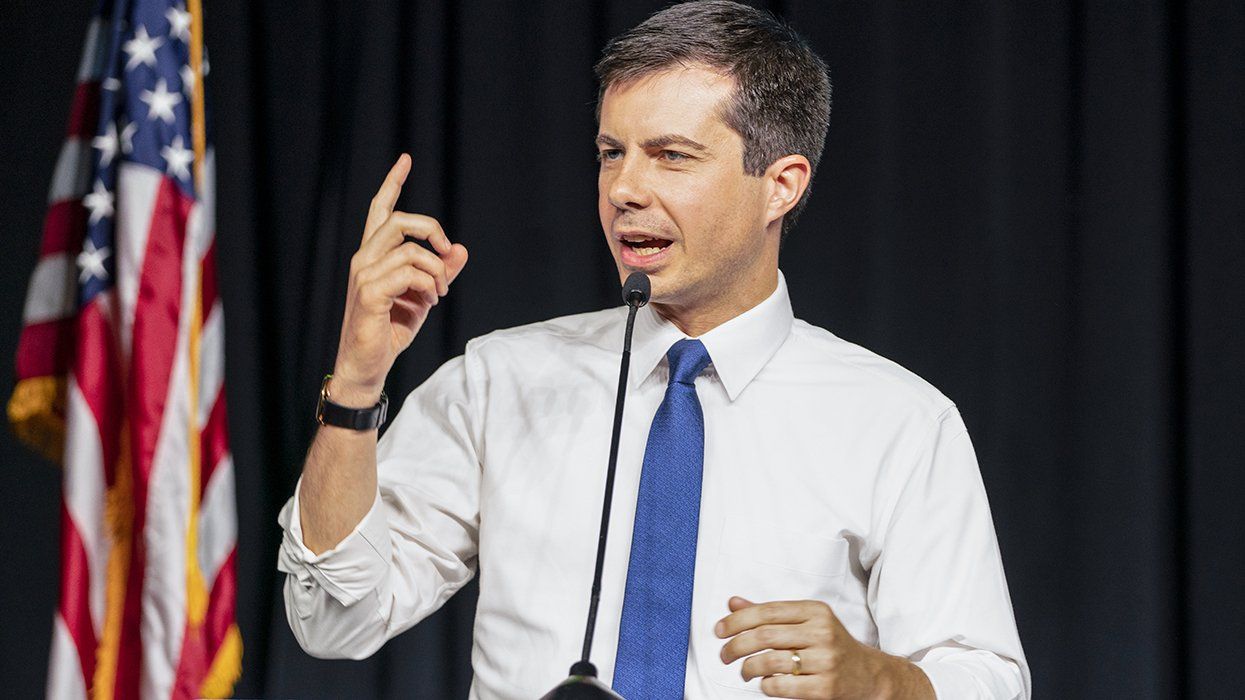U.S Secretary of Transportation Pete Buttigieg didn’t pull any punches during his appearance on Real Time with Bill Maher Friday evening and delivered a scathing critique of JD Vance, former President Donald Trump’s vice-presidential pick.
Appearing as a campaign surrogate and not as transportation secretary following the Hatch Act, which prevents federal employees from engaging in political activity while working — Buttigieg also scrutinized the role of Peter Thiel, an out gay tech billionaire who founded PayPal, in Vance’s political rise, highlighting the contradictions within the Republican Party.
Buttigieg suggested that Thiel’s support for candidates like Vance was driven by a desire to maintain a favorable political environment for his business interests despite the ideological inconsistencies. Buttigieg described Thiel’s support for Vance as a “profound contradiction,” given Vance’s opposition to marriage equality despite Thiel being gay. “I know there are a lot of folks who say, ‘What’s going on with some of these Silicon Valley folks veering into Trump world with JD Vance and backing Trump? Silicon Valley... they’re supposed to care about climate. They’re supposed to be pro-science and rational and libertarians. So, normally, libertarians don’t like the authoritarians. What’s up with that?’” Buttigieg said. “I think it’s actually—we’ve made it way too complicated. It’s super simple. These are very rich men who have decided to back the Republican party that tends to do good things for very rich men.”
“These are very rich men who have decided to back the Republican Party that tends to do good things for very rich men,” Buttigieg said.
Buttigieg didn’t stop at highlighting the ideological inconsistencies. He also addressed Vance’s opportunistic shift from a critic of Trump to a staunch supporter. He recalled Vance’s earlier statements, criticizing Trump as “cynical” and “unfit,” only to embrace him fully later. Buttigieg noted that Vance once described Trump as “cultural heroin” and compared him to Adolf Hitler and highlighted that Vance had called Trump an opioid, explaining, “For somebody whose identity is that they’re connected to Appalachia, which has an opioid crisis, that really is the darkest thing you could possibly say about Donald Trump, at least in public.”
This, Buttigieg suggested, epitomized the political opportunism prevalent within the Republican Party.
Drawing a parallel, Buttigieg recounted the transformation of former Vice President Mike Pence, who shifted from a staunch evangelical Christian as Indiana governor when Buttigieg was mayor of South Bend, to a Trump loyalist. Buttigieg noted how Pence’s pursuit of power led to a dramatic moment during the 2021 Capitol insurrection when Trump supporters turned against him. Buttigieg said he hoped Vance’s journey wouldn’t end similarly.
Buttigieg concluded, “I knew a lot of people like him [Vance]. When I got to Harvard, I found a lot of people like him who would say whatever they needed to get ahead. Five years ago, that seemed like being the anti-Trump Republican. So that’s what he was.”





































































Charlie Kirk DID say stoning gay people was the 'perfect law' — and these other heinous quotes